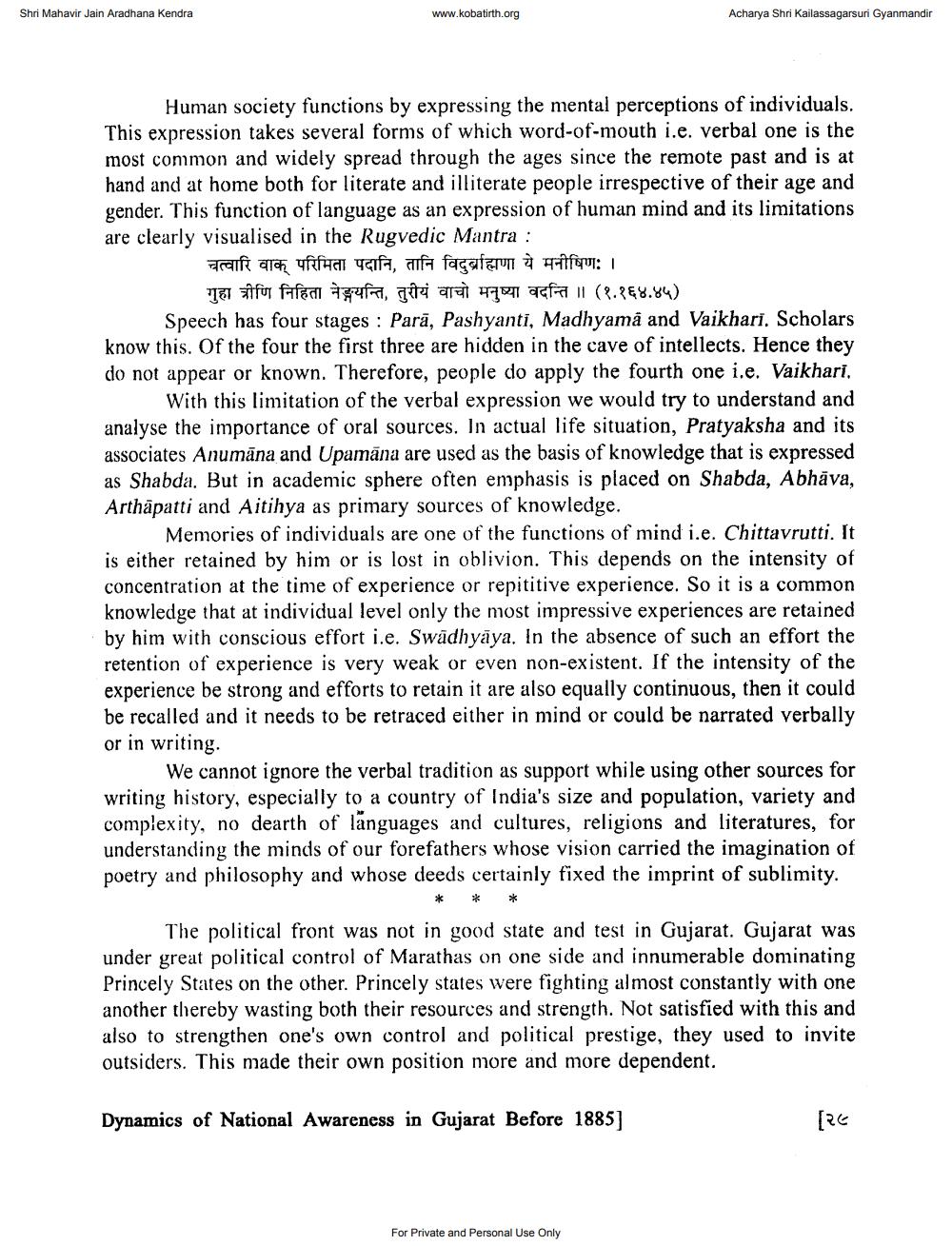________________
Shri Mahavir Jain Aradhana Kendra
www.kobatirth.org
Acharya Shri Kailassagarsuri Gyanmandir
Human society functions by expressing the mental perceptions of individuals. This expression takes several forms of which word-of-mouth i.e. verbal one is the most common and widely spread through the ages since the remote past and is at hand and at home both for literate and illiterate people irrespective of their age and gender. This function of language as an expression of human mind and its limitations are clearly visualised in the Rugvedic Mantra :
चत्वारि वाक् परिमिता पदानि, तानि विदुर्ब्राह्मणा ये मनीषिणः ।
गुहा त्रीणि निहिता नेङ्गयन्ति, तुरीयं वाचो मनुष्या वदन्ति ।। (१.१६४.४५)
Speech has four stages : Parā, Pashyanti, Madhyama and Vaikhari. Scholars know this. Of the four the first three are hidden in the cave of intellects. Hence they do not appear or known. Therefore, people do apply the fourth one i.e. Vaikhari,
With this limitation of the verbal expression we would try to understand and analyse the importance of oral sources. In actual life situation, Pratyaksha and its associates Anumāna and Upamāna are used as the basis of knowledge that is expressed as Shabda. But in academic sphere often emphasis is placed on Shabda, Abhāva, Arthāpatti and Aitihya as primary sources of knowledge.
Memories of individuals are one of the functions of mind i.e. Chittavrutti. It is either retained by him or is lost in oblivion. This depends on the intensity of concentration at the time of experience or repititive experience. So it is a common knowledge that at individual level only the most impressive experiences are retained by him with conscious effort i.e. Swadhyāya. In the absence of such an effort the retention of experience is very weak or even non-existent. If the intensity of the experience be strong and efforts to retain it are also equally continuous, then it could be recalled and it needs to be retraced either in mind or could be narrated verbally or in writing.
We cannot ignore the verbal tradition as support while using other sources for writing history, especially to a country of India's size and population, variety and complexity, no dearth of languages and cultures, religions and literatures, for understanding the minds of our forefathers whose vision carried the imagination of poetry and philosophy and whose deeds certainly fixed the imprint of sublimity.
The political front was not in good state and test in Gujarat. Gujarat was under great political control of Marathas on one side and innumerable dominating Princely States on the other. Princely states were fighting almost constantly with one another thereby wasting both their resources and strength. Not satisfied with this and also to strengthen one's own control and political prestige, they used to invite outsiders. This made their own position more and more dependent.
Dynamics of National Awareness in Gujarat Before 1885)
[૨૯
For Private and Personal Use Only




